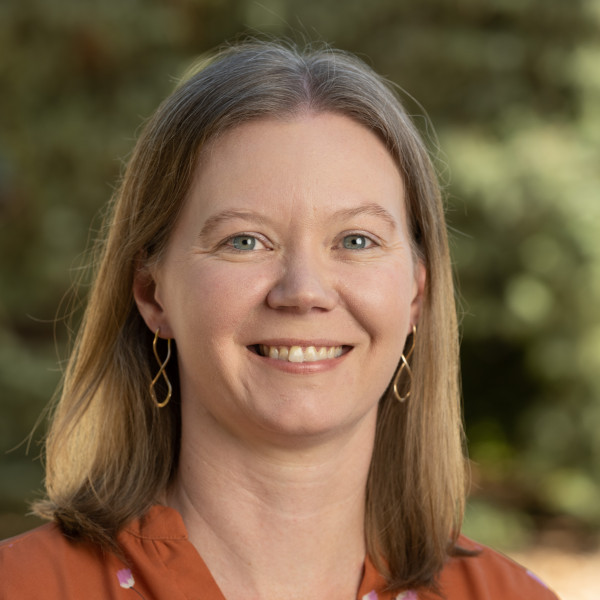Professor
About
Website
Google Scholar ProfileOffice Hours
by appointmentRole
FacultyPosition
- Professor
Concentration
- science communication, environmental communication, social media, public engagement with science, public opinion, strategic communication
Department
- Journalism & Media Communication
Education
- Ph.D. (University of Wisconsin-Madison)
Curriculum Vitae:
Biography
Ashley Anderson’s research centers around public engagement with and public opinion of scientific issues in various communication settings (social and digital media, organizations, and news media).
One area of her work explores how humor, incivility, and sarcasm in digital media conversations both engage and divide the public along scientific issues. Recent collaborative work in this area has demonstrated how humorous messages about science engage audiences in message elaboration and counterarguing, encourage attention to and information sharing about science in social media spaces, and enhance the perceived validity of comedy in communicating science.
Dr. Anderson also works in partnership with community organizations to use evidence-based approaches to communicate about health and environmental risks such as air quality and wildfire smoke, pandemic disease, and workplace health and safety exposures. Her work in this area is informed, in part, by her research on how individuals develop trust in and preferences for information sources for emerging and controversial scientific issues.
In her work, Dr. Anderson also analyzes social media conversations for evidence of how people 1) engage with the topic of climate change around extreme weather, and 2) express resilience (e.g., emotional responses, language of the collective). This line of research points to different opportunities to communicate with populations impacted by extreme weather.
Dr. Anderson is a member of the Center for Science Communication at CSU and is actively engaged in grant-funded research. Dr. Anderson is Vice Head of the Communicating Science, Health, Environment and Risk Division of the Association for Education in Journalism and Mass Communication. Prior to joining the faculty at CSU in 2013, she completed a postdoctoral research fellowship in the Center for Climate Change Communication at George Mason University.
Publications
Bice, C., Anderson, A. A., Abrams, K. M., Long, M. (2024). Breathing on the job: Investigating predictors of air quality protective actions and information seeking among outdoor workers. Journal of Communication in Healthcare. https://doi.org/10.1080/17538068.2024.2320478
Cagle, S. M., Anderson, A. A., & Kelp, N. C. (2024). Stop the spread: Empowering students to address misinformation through community-engaged, interdisciplinary science communication training. Journal of Research in Science Teaching.
Enyinnaya, J., Anderson, A. A., Kelp, N. C., Long, M., Duncan, C. (2024). The health belief model misinformation framework: Examining the impact of misinformation on vaccine uptake through individual and sociological factors. Vaccine, 42(3), 455-463.
Kelp, N. C., Anderson, A. A., Enyinnaya, J. (2024). All STEM students should learn inclusive science communication. Nature Human Behavior. https://doi.org/10.1038/s41562-024-01918-4
Choi, S., Anderson, A. A., Cagle, S., Long, M., Kelp, N. (2023). Scientists’ deficit perception of the public impedes their behavioral intentions to correct misinformation. Plos One, 19(8): e0287870.
Anderson, A. A. (2021). Expressions of resilience: Social media responses to a flooding event. Risk Analysis, 41(9), 1600-1613.
Anderson, A. A., Williams, E., Long, M., Carter, E., Volckens, J. (2020). Organizationally based citizen science: Considerations for implementation. Journal of Science Communication, 19(3), A01.
Anderson, A. A. & Becker, A. B. (2018). Not just funny after all: Sarcasm as a catalyst for public engagement with climate change. Science Communication, 40(4), 524-540.
Anderson, A. A., Yeo, S. K., Brossard, D., Scheufele, D. A., & Xenos, M. A. (2018). Toxic Talk: How Online Incivility Can Undermine Perceptions of Media. International Journal of Public Opinion Research, 30(1), 156-168.
Anderson, A. A. & Huntington, H. E. (2017). Social media, science, and attack discourse: How Twitter discussions of climate change use sarcasm and incivility, Science Communication, 39(5), 843-860.
Anderson, A. A. (2017). Effects of social media use on climate change opinion, knowledge, and behavior. Oxford Research Encyclopedia on Climate Science. Oxford Research Encyclopedias.
Anderson, A. A. (2017). The social nature of online media and its effects on behaviors and attitudes. In A. Dudo & L. Kahlor, New agendas in strategic communication, Routledge: New York, 66-83.
Anderson, A. A., Brossard, D., Scheufele, D. A., Xenos, M. A., & Ladwig, P. (2014). The Nasty Effect: Online Incivility and Risk Perceptions of Emerging Technologies: Crude comments and concern. Journal of Computer-Mediated Communication, 19(3), 373387. doi:10.1111/jcc4.12009
Anderson, A. A.; Delborne, J. A.; & Kleinman, D. L. (2013).Information beyond the forum: Motivations, strategies, and impacts of citizen participants seeking information during a consensus conference.Public Understanding of Science, 22(8): 955-970.
Anderson, A. A.; Myers, T. A.; Maibach, E. W.; Cullen, H.; Gandy, J.; Witte, J.; Stenhouse, N.; Leiserowitz, A. (2013). If they like you, they learn from you: How a brief weathercaster-delivered climate education segment is moderated by viewer evaluations of the weathercaster. Weather, Climate, and Society, 5(4): 367-377.
Anderson, A. A.; Scheufele, D. A.; Brossard, D. B.; Corley, E. A. (2012). The role of media and deference to scientific authority in cultivating trust in sources of information about emerging technologies. International Journal of Public Opinion Research, 24(2): 225-237.
Anderson, A. A.; Brossard, D.; & Scheufele, D. A. (2010). The changing information environment for nanotechnology: Online audiences and content. Journal of Nanoparticle Research, 12(4), 1083-1094.
Courses
-
JTC 698/JTC 798 Research
